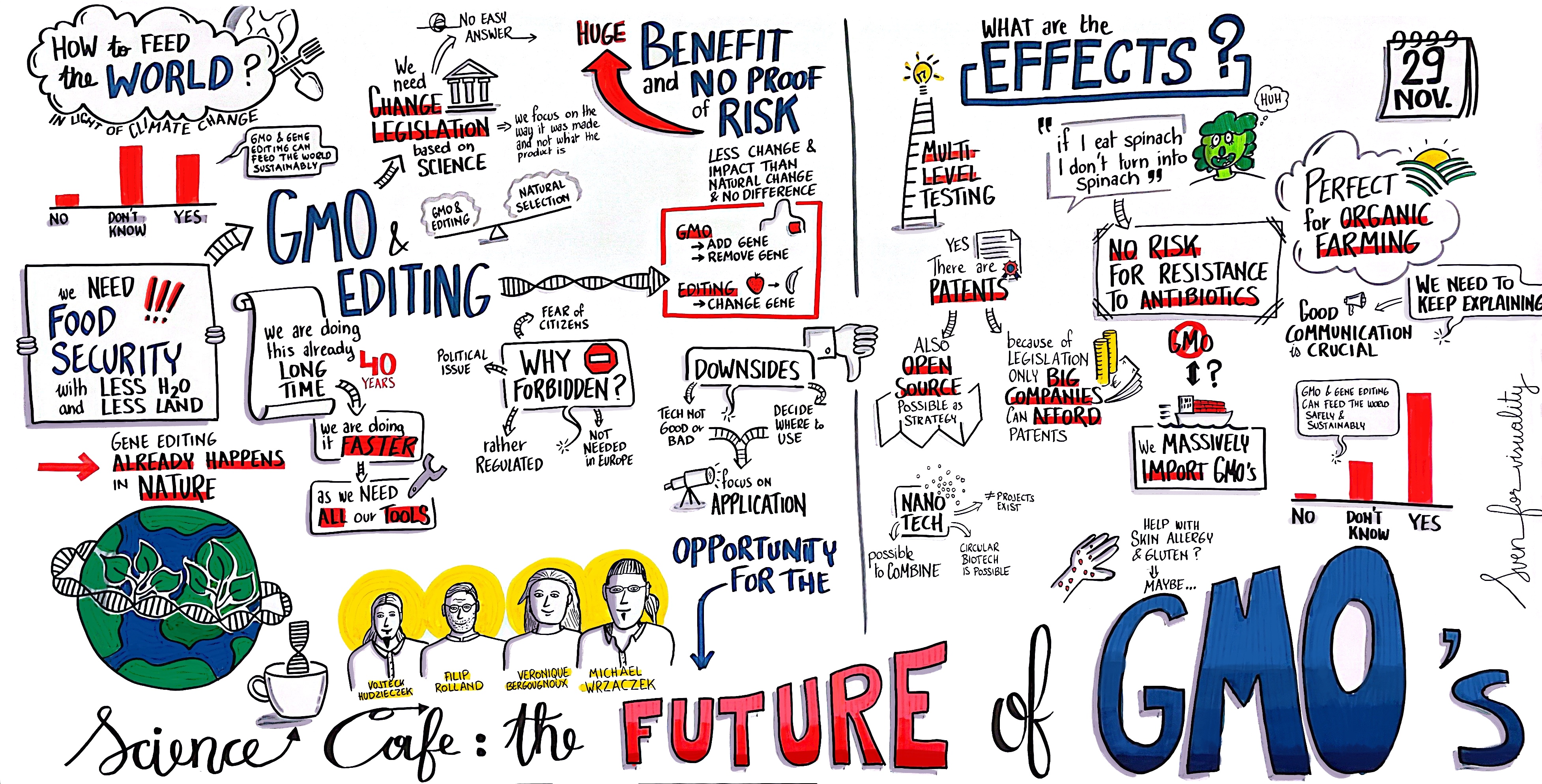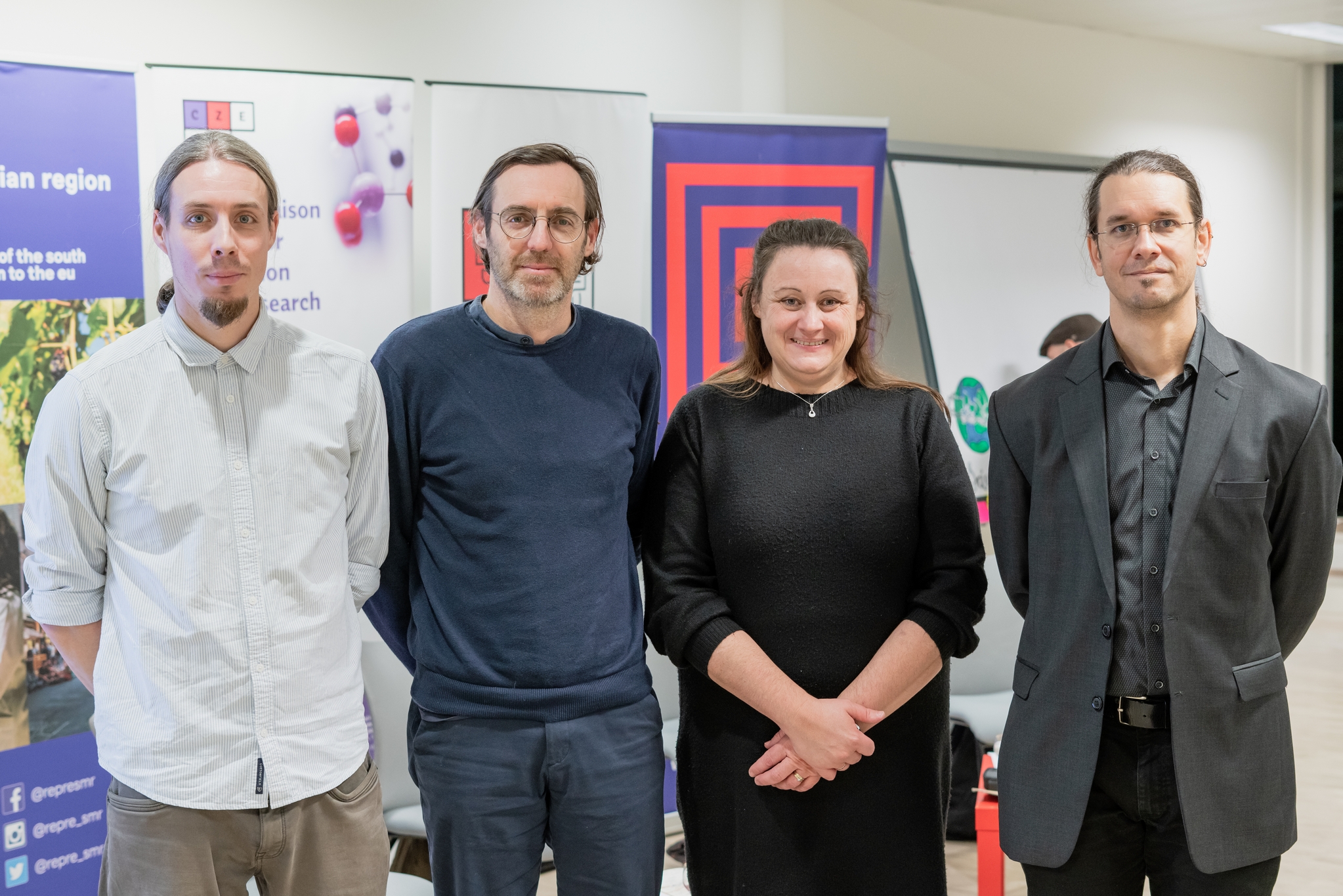At this year's last Science Café, experts discussed the issue of gene editing and GMOs
The event attracted almost 70 participants, including a delegation from the Ministry of Education, Youth and Sports.
Four scientists from research institutions of the Czech Republic and Belgium discussed the issue of genetically modified organisms and gene editing with regard to the future of agriculture, food industry and climate change. The event organized by the CZELO office, the Representation of the South Moravian Region in Brussels and the Czech Center Brussels in the premises of the Permanent Representation of the Czech Republic to the EU attracted almost 70 participants.
Speakers:
• Veronique Bergougnoux – head of the plant genetics and engineering research group at CATRIN – CRH of the Palacký University in Olomouc.
• Vojtěch Hudzieczek – researcher at the Institute of Biophysics CAS
• Filip Rolland – director of the KU Leuven Plant Institute
• Michael Wrzaczek – head of the Institute of Plant Molecular Biology at the Biological Centre CAS
• Moderator: Gary Austin - circleindigo
The researchers opened the debate with the issues of drought, erosion and climate change. These complications affect the cultivation of various crops, to which gene editing is trying to find an answer. It is gene mutations that have been found in nature and the evolutionary cycle for millions of years, but since the 1980s, the scientific community around the world has succeeded in penetrating this process and thus helping crops to become more resistant to the various impacts of climate change. Regarding the need to find a solution, the speakers pointed out the problem of legislation and the need for deregulation, together with the different approach to these technologies in legislation around the world. For example, in the USA, regulation is applied only to the final product, while in Europe, the very process of creating genetically modified crops is regulated and monitored, which greatly limits their final application.

Numerous controversial claims are often associated with GMOs and gene editing technologies, which the panel of debaters addressed in the second part of the debate. For example, GMOs are often wrongly associated with the use of monocultures on large areas. Crops with a more resistant genetic makeup, on the other hand, are suitable for organic farming, because they are not as susceptible to pests, fungi or drought and therefore do not require chemical treatment. Another controversial claim is the fear of antibiotic resistance and its transfer to humans, but this property can be avoided by not using the antibiotic resistance gene when identifying a genetic marker. Furthermore, the paradox of the import of GMO food and especially feed into Europe was also mentioned, which is not regulated, but the production itself in the EU is.
In conclusion, the researchers agreed that the main role of the scientific community is to inform society more about the possibilities and harmlessness of gene editing and similar technologies, the deregulation of which may well be the answer to the climate problems currently facing crop cultivation around the world.
The event was also attended by a delegation from the Ministry of Education, Youth and Sports headed by Minister Vladimír Balaš, who at the end of the debate summarized the issue of GMOs in law and international trade, looking back on personal experience in negotiating the common agricultural policy.
In the near future, we will also publish a recording of the debate, which you can find on our YouTube channel.
Find photos (Martin Palko) from the event on the CZELO Facebook page.
